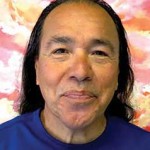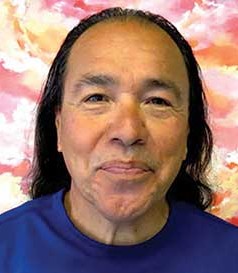Other Voices is an opinion column that provides a forum where different viewpoints can be expressed by people from all political, socio-economic, ethnic and cultural backgrounds.
BY ARMANDO VAZQUEZ
Legend has it that in the summer of 1966 a few major league baseball scouts where already showing up to my baseball games, I was 14 years old at the time.
 Mr. Mario Cano, my unofficial agent and baseball dad would “interview” some of the scouts and some of the high school baseball coaches that were trying to convince him that they could give me the “best shot at the show” if we went with them.
Mr. Mario Cano, my unofficial agent and baseball dad would “interview” some of the scouts and some of the high school baseball coaches that were trying to convince him that they could give me the “best shot at the show” if we went with them.
I just played the game I loved; and Mr. Cano, God bless him, protected me.
I had just graduated top of the class as a scholar, an athlete, a statesman, from McClay Jr. High School a magnificently integrated scholarly college prep United Nations that was a LAUSD public school that happened to be situated in one the toughest barrios of Pacoima.
The preceding three years at McClay would transforms me from a shy introvert into a confident youth leader and universally respect and admired scholar jock. These three years at McClay, were I would later acknowledge the defining period in my life.
And then it was over, as though I had awakened from a beautiful dream. Here I was again adrift and caught up in the maelstrom of incessant poverty, racism, isolation and clueless adolescence.
That summer of 1966 I was pushed into manhood long before my time. My older brother had joined the Navy; he had no clue what he was getting into. He just wanted out.
Anywhere but here in our existence where he saw only a dreadful life of more poverty and oppression. So he was gone at the age of 17, a high school diploma in one hand and enlistment papers in the other, gone.
I had absolutely no one to talk too. As the only son that remained in the house I had the mandatory responsibility to help my family. So I worked alongside my father the entire summer, 10 to 12 hours a day Monday through Saturday and half day on Sunday, all summer long. I temporarily escaped this existence when I was freed to play baisbol.
High school would begin in the fall and I had to make a critical life altering decision that I knew then would determine to a great degree who I would become. I decided to enroll at Verdugo High School, located in the foothills of Tujunga.
This high school with its’ well respected baseball program would give me the best chance to realize my dream; to become the shortstop for the Los Angeles Dodgers. College was nowhere on my radar.
On the first day of high school my best friend, Roger Zukinan, who I not seen for the entire summer, turned his back on me and whispered to me, “You go to the Mexican side and I’ll stick to my people”.
We never spoke again.
Throughout that school day all I heard was racist remarks spew unabated and unchallenged by anyone. In class I was placed in all the “dumbbell” classes, someone forgot to tell the school administration that I was a straight A honors scholar. No In this school I was just another dumb Mexican.
I knew that first day of high school that I had made the greatest mistake of my young life. But my dream of baseball was much greater than my dread, so I pushed on.
I had no other choice.
On my very good varsity baseball racist slurs flow like the beer that all of my teammates spewed and consumed every chance they got. I was in the midst of drunken racist, when they were sober they would play baseball. I played out that entire year in that racist hell full of hate filled young men; it was the first year that doubt of making it to the “show” first crept into my mind. It was the year that fear crept into my soul.
The following year, 1967 I transferred to San Fernando High, to be apart of the worst baseball program in the state, but I was around friends, away from the cancerous racism. That same year San Fernando high School suffered through a number of school race riots, mostly involving Chicano and black youth.
It felt that the hate I experienced at Verdugo was following me to San Fernando. I had to choose sides; I was a Mexican, so I stuck to my own. Just like my friend Rodger had done so one year earlier. That same year I had my only bad year of my baseball career.
Baseball is a wickedly cruel and fickle game; you rip scorching line drives right into the fielders’ glove for a loud out. The entire season was like that I had never hit the ball harder in life; but I was luckless, I batted under .200, I was beyond despondent.
My life had come to an end. I played out the year in total agony, after the season I quietly threw my glove and bat in the trash; and I walked away from the game I loved.
My senior year I walked around like a zombie, I stopped playing sports, the first time in my young life that I wasn’t involved in two or three sports at the same time. I started to hang out with the homeboys a little bit more; the partying became more frequent, my grades suffered.
At the lowest point in my life I was called to report to the Los Angeles Army induction center for the mandatory physical readiness for service exam that was part of the rights of passage for every Chicano and black youth back in those tumultuous days.
I was sure of only three things in those days, one, I wasn’t going to Vietnam, I would go to jail, two, my baseball dreams were stone cold dead, and three I wasn’t going to college.
In the summer of 1969 I continued to work with my father at the Westenburger Orchid Greenhouse plantation. I was thoroughly defeated by the events in my life.
I gave in to the inevitable; I would work as an “indoor campesino” for the rest of my life, just like my father. In late August of 1969, I received the second letter that I had ever received that was address specifically to me; it was from the San Fernando Valley State Colleges’ Educational Opportunities Program or EOP.
I had been admitted into the college under their affirmative action program! If there is heaven on earth then surely that college admission offer represented a divine gifted from God. This lost, insignificant frightened young ghost that was drifting into oblivion was resurrected that day and of course the gift of college change my entire life and then quickly the purpose of my life.
That is why as an adult I have dedicated my entire life to fight for universal access to higher education for all of our youth. Higher education in America should not be a privilege but an inalienable right for every person in this country.
Life is never easy, without education life can be hell. So at the end of the year I will continue as I have for over four decades to work hard every day so that everyone of our kids are awarded the gift of equal educational access and opportunities to attend college, just like I was in 1969.
In eternal gratitude and trying mightily to pay it forward.
With love, Armando
Armando Vazquez, is an owner of Café on A / Acuña Gallery and Cultural Center in Oxnard, California The Café on A has had a historical presence in the Ventura County art scene for 15 years.
For more information on Cafe on A:
Executive Directors Dr. Deborah DeVries and Armando Vazquez
438 South “A” Street, Oxnard , CA 93030 Box 1387, Oxnard 93032-1387 Phone: 805-216-4560

